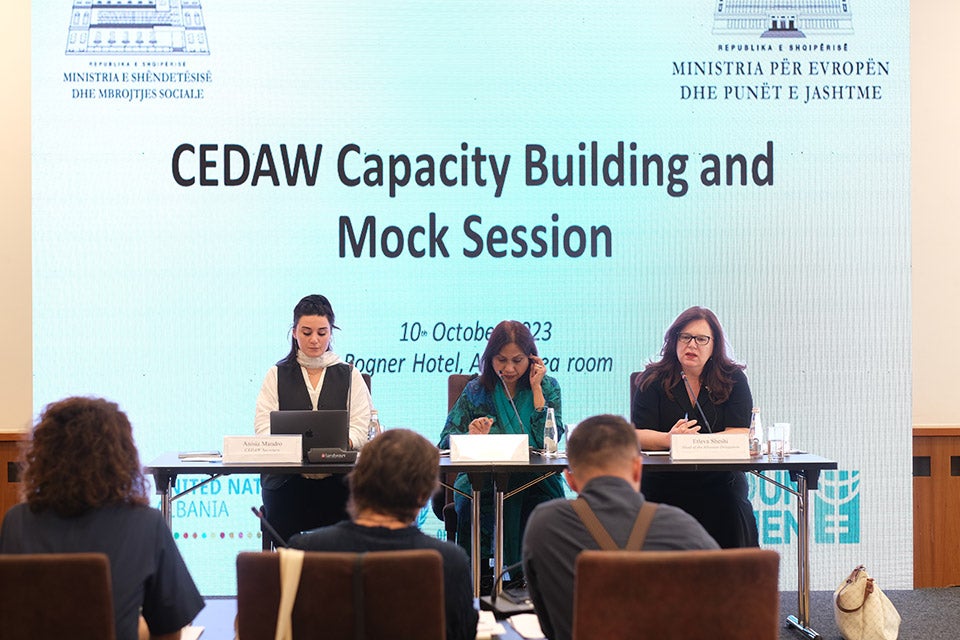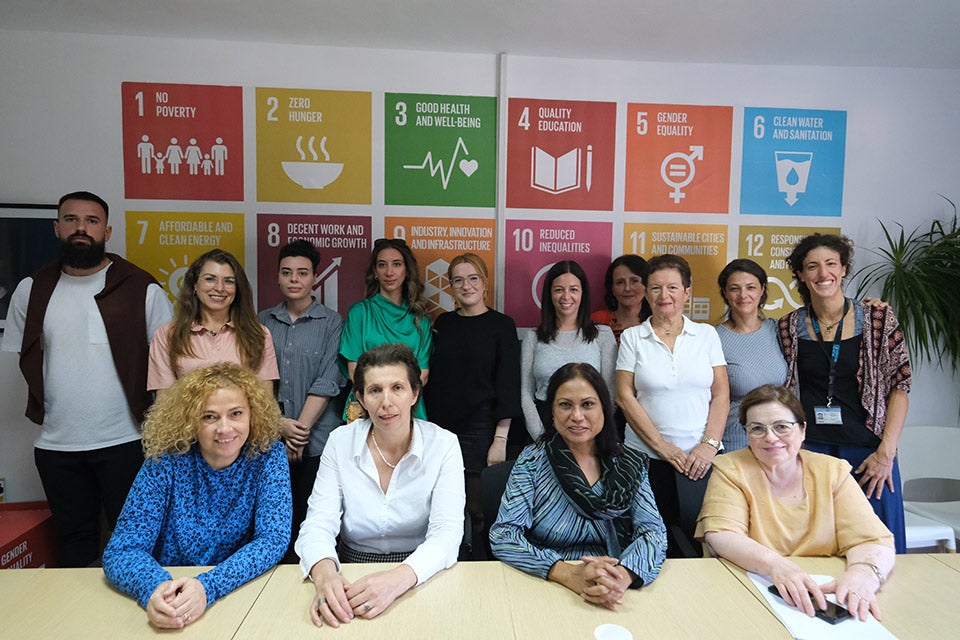Albania Gears Up for the 2023 CEDAW Committee Review to Advance Gender Equality
Date:

Tirana, Albania – In a dedicated effort to promote gender equality and eliminate all forms of discrimination against women, Albania is preparing for its fifth report to the Committee on the Elimination of All Forms of Discrimination Against Women (CEDAW), scheduled for October 18, 2023.
The CEDAW, established by the UN General Assembly in 1979, is often described as an international bill of rights for women, defining discrimination against women and setting a national action agenda to eliminate it. In 1994, Albania ratified the Convention, committing to end all forms of discrimination against women. To fulfill its obligations under the convention, Albania regularly reports updates on progress made against the articles of the Convention to the CEDAW Committee.
To prepare the Albanian delegation for the complex reporting process, UN Women Albania, supported by the Office of the High Commissioner for Human Rights (OHCHR), the Ministry of Health and Social Protection, and the Ministry of Foreign Affairs, organized a capacity-building and a mock review session. The primary goal of these sessions was to ensure that the delegation members could better understand the Convention and its substantive obligations, as well as the State Party's commitments, thereby preparing them for the proceedings of an actual CEDAW Committee review.
The mock review session aimed to simulate the format of a UN conference room, with similar seating arrangements for government delegation members, observers, and those acting as members of the CEDAW Committee. In this simulated setting, the delegation was presented with questions that they would likely face during the actual CEDAW Committee review. Additionally, Ms. Etleva Sheshi, the Head of the Albanian Delegation, was asked to prepare an introductory statement for the review.
“This activity was very helpful for the preparation and best presentation of the Albanian delegation in the dialogue with the committee members, said Ms Sheshi.
The mock session led to constructive dialogues, valuable advice, and pertinent questions exchanged between the Albanian delegation and the mock CEDAW Committee members. These sessions were particularly significant as they helped prepare the delegation for the review process, especially in the context of EU accession negotiations.
Michele Ribotta, the UN Women representative, emphasized that progress has been made in several areas covered by the Convention. He noted that the CEDAW Committee would recognize both the progress achieved and the remaining challenges, highlighting the importance of continuously improving the country's gender equality agenda.
“This session helped us prepare better by providing guidance, inspiration and practical advice”, said Ms. Elona Dedi, gender focal point at the Ministry for Europe and Foreign Affairs.

Before the capacity-building sessions, CEDAW experts met with Civil Society Organizations (CSOs) active in the field of gender equality and women's rights. This meeting provided an opportunity for CSOs to engage with experts, share key concerns, and present recommendations they had submitted to the CEDAW Committee, often through shadow reports.
Critical issues and recommendations were discussed during these meetings, including the development of legislation on reproductive health, access to free legal aid services for victims of domestic violence, improved accessibility to legal services for women with disabilities, legal recognition for the transgender community, and awareness campaigns aimed at breaking down gender stereotypes.